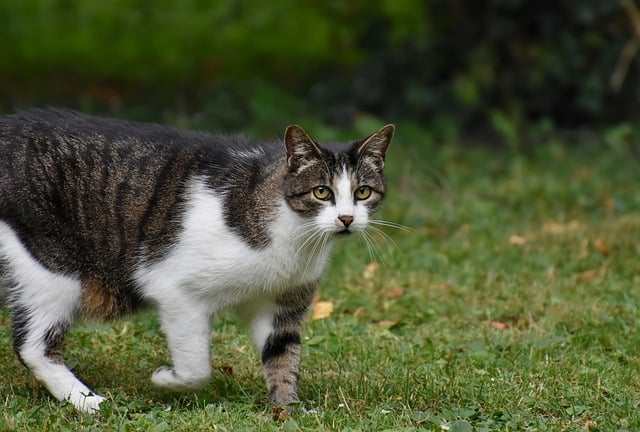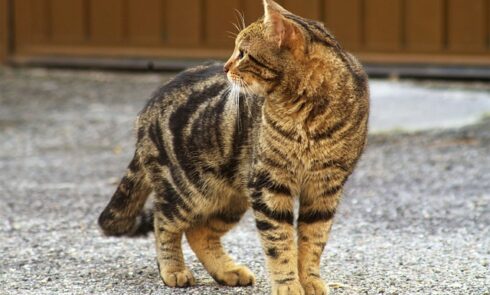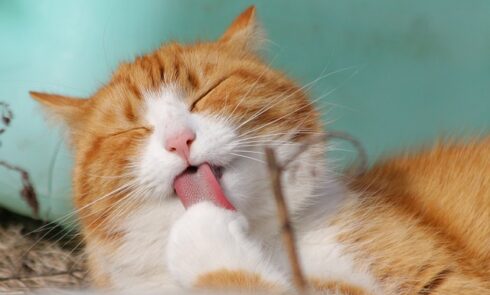Understanding your cat’s ideal weight can significantly influence its overall health and well-being. Just as with humans, maintaining an appropriate weight is crucial for cats to lead a healthy and active life. While many cat owners focus on their pet’s diet and exercise routines, it’s also essential to understand the relationship between a cat’s height and its optimal weight. This post aims to provide comprehensive guidelines for determining the ideal weight for taller cats, especially for cat owners in New Zealand.
Why Cat Weight Matters
Keeping your cat at an ideal weight can help prevent a myriad of health issues. Overweight cats are prone to:
- Diabetes
- Arthritis
- Heart Disease
- Liver Problems
Conversely, underweight cats might suffer from malnutrition, weakened immune systems, and lack of energy. By understanding the ideal weight for your tall cat, you can ensure they live a healthier, happier life.
Factors Influencing Ideal Cat Weight
Several factors determine the ideal weight for a tall cat:
- Breed: Certain breeds are naturally larger and taller. Maine Coons, for instance, are much bigger than Siamese cats.
- Age: Kittens and senior cats have different nutritional needs and ideal weights than adult cats.
- Activity Level: Active cats who spend a lot of time playing or hunting may need more calories and thus may weigh more healthily.
- Diet: The type of food and portion size directly impact your cat’s weight.
Ideal Cat Weight Guidelines
Generally, the ideal weight for cats varies between 8-12 pounds. However, this range can shift based on the cat’s height and breed. Here’s a breed-specific breakdown:
- Maine Coon: 10-25 pounds
- Siberian: 8-17 pounds
- Ragdoll: 10-20 pounds
- Siamese: 6-14 pounds
- Bengal: 8-15 pounds
To determine if your cat falls within these guidelines, regular visits to the vet are essential. Your vet can provide tailored advice considering your cat’s unique characteristics.
How to Measure Your Cat’s Height
Knowing your cat’s height can help you better understand its ideal weight range. Follow these steps to measure your cat accurately:
- Find a flat surface where your cat feels comfortable.
- Use a measuring tape to measure from the floor to the shoulder blades (also known as the withers).
- Record the measurement for future reference.
Calculating the Ideal Weight for Tall Cats

There isn’t a one-size-fits-all formula, but a general rule of thumb is that for every inch of height, a cat should weigh approximately 1.5 to 2 pounds. For example, if your cat is 12 inches tall, an ideal weight range would be 18-24 pounds.
Tips for Maintaining Ideal Cat Weight
Balanced Diet
Ensure your cat’s diet is balanced with the right proportions of protein, fat, and carbohydrates. Consult your vet for the best dietary plan.
Regular Exercise
Encourage active play to help your cat burn excess calories. Toys, laser pointers, and interactive games can keep your cat engaged.
Routine Check-ups
Regular vet visits are crucial for monitoring your cat’s weight and overall health. Your vet can offer guidance and adjustments as needed.
Monitor Treats
Be mindful of the number of treats you give your cat. Opt for healthy alternatives and ensure treats make up no more than 10% of their daily calorie intake.
Common Mistakes to Avoid
Overfeeding
It’s easy to overestimate the amount of food your cat needs. Always measure portions and avoid free-feeding.
Ignoring Weight Changes
Even minor changes in your cat’s weight can indicate underlying health issues. Regularly weigh your cat and consult your vet with any concerns.
Inconsistent Exercise
Maintain a consistent exercise routine to keep your cat active and healthy.
5 Fascinating Insights for New Zealand Cat Owners
1. The Importance of BMI for Cats
Just as Body Mass Index (BMI) is a critical measure for human health, it’s becoming more common to use a similar metric for cats. The Cat Body Mass Index (CBMI) considers a cat’s height and weight, serving as a reliable indicator of healthy weight. Veterinarians in New Zealand are increasingly adopting this tool for comprehensive cat health assessments.
2. Breed-Specific Nuances
In New Zealand, breed-specific guidelines for ideal weight are invaluable, especially for taller breeds like the Maine Coon or Siberian. These guidelines help cat owners understand that a Maine Coon towering at 15 inches in height might thrive best at a higher weight range, closer to 25 pounds, reflecting its naturally larger frame.
3. Geographic and Genetic Factors
New Zealand’s unique geographic conditions can influence a cat’s lifestyle and, consequently, its weight. Cats in rural areas may be more active, engaging in hunting and climbing, which necessitates a higher caloric intake. Conversely, urban cats may need more controlled diets due to a typically more sedentary lifestyle.
4. Seasonal Weight Variations
Cats in New Zealand might experience seasonal weight changes. During colder months, they may bulk up slightly due to less outdoor activity and more caloric intake to keep warm. Understanding these seasonal shifts is crucial for maintaining an ideal weight year-round, ensuring they neither gain excess weight in winter nor lose too much during summer.
5. Technology and Pet Health
New Zealand cat owners are increasingly leveraging technology to maintain their pets’ ideal weight. Smart feeders, activity trackers, and dedicated apps allow for precise monitoring of dietary intake and activity levels, helping ensure cats remain within their optimal weight range for their height and breed.
These insights underscore the complexity and importance of managing a cat’s weight relative to its height, offering New Zealand cat owners practical and advanced strategies to promote their pets’ well-being.
Conclusion
Understanding and maintaining your cat’s ideal weight is a continuous process that demands attention and care. By following the guidelines outlined in this post, you’ll be better equipped to ensure your tall cat lives a long, healthy, and happy life.
For personalized advice tailored to your cat’s unique needs, consider booking a consultation with your veterinarian.
Call to Action
If you’re looking for more tips on feline health and wellness, subscribe to our newsletter today and join a community of pet lovers dedicated to giving their animals the best life possible.
FAQ
You can perform a quick check by gently feeling your cat’s ribs and spine. If you can easily feel these bones without pressing hard, your cat is likely at a healthy weight. Conversely, if you can’t feel them at all, your cat may be overweight. If the ribs and spine are very prominent and visible, your cat might be underweight. Always consult your vet for a thorough assessment.
Weighing your cat once a month is generally sufficient to monitor any significant weight changes. However, if your cat has any medical conditions or is on a weight management plan, your vet might recommend more frequent weigh-ins.
A balanced diet with an appropriate mix of protein, fats, and carbohydrates is crucial. High-quality commercial cat food usually meets these requirements, but it’s best to consult your vet to create a meal plan tailored to your cat’s specific needs.
Cats typically require 20-30 minutes of active play a day. This can include interactive toys, climbing trees, or even short walks if your cat is comfortable with a harness.
Yes, different breeds have different ideal weight ranges. Big breeds like Maine Coons will naturally weigh more than smaller breeds like Siamese cats, even if both are healthy and fit. Always consider breed-specific guidelines alongside general advice.
Yes, treats are fine in moderation. They should not exceed 10% of your cat’s daily caloric intake. Opt for healthy, low-calorie options and avoid overfeeding.
If your cat is not gaining weight despite a proper diet and exercise, it could indicate an underlying health issue. Schedule a vet appointment to rule out any medical conditions and receive specialized guidance.
Work with your vet to develop a gradual weight loss plan. This usually involves adjusting the cat’s diet, portion sizes, and increasing daily physical activity. Sudden weight loss can be harmful, so a controlled approach is essential.


